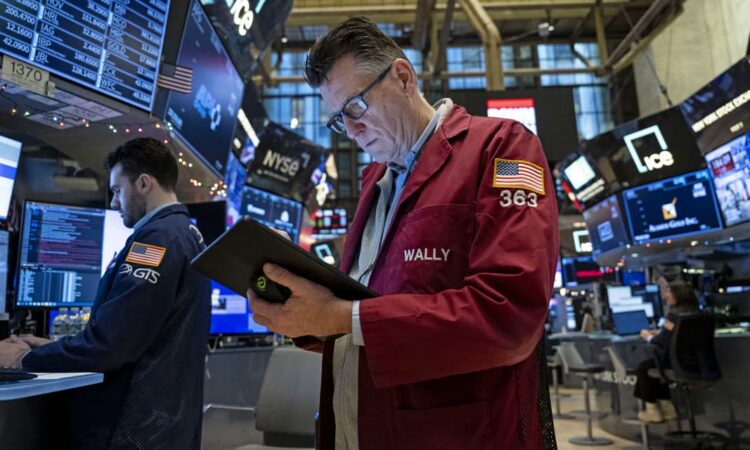
Dreams die hard—and traders are still holding on to their rose-colored reverie of a soft-landing economy and a dovish Federal Reserve. What they couldn’t do was push the
to a record closing high, despite exceeding that level briefly this past week.
All told, the S&P 500 ended the week up 1.8%, just 0.3% off the record high, while the
rose 0.3%.
Apple
,
which lost 6% in the first week of the year, gained 3% in the second, helping the
climb 3.1%.
Nothing seemed able to knock the market down. December’s consumer price index increased by 0.3% on a monthly basis, a tenth of a point above expectations. On a year over year basis, prices were up 3.4%, above the 3.1% annual rate in November.
On its face, the number wasn’t great for investors who hoped that inflation will fade away and the Fed will turn its attention to cutting rather than raising. But the data were complicated enough that confidence that the Fed will start cutting rates this year remains high. Traders see a 79% chance of a cut as soon as March, while the 10-year Treasury yield declined to 3.949%, from 4.041% the week before.
Those bets seem at odds with the data, however. Inflation’s path down will be “grinding,” predicts David Doyle, head of economics at Macquarie. “We continue to see disinflation as occurring gradually with challenges that may frustrate smooth progress towards the 2% target. As a result we suspect Fed rate cuts may only commence in the second quarter,” he wrote.
Advertisement – Scroll to Continue
At the same time, fourth-quarter earnings season started with positive news, if lackluster results. Banks kicked things off on Friday, and most of the stocks fell on the day:
closed down 0.7%,
declined 1%, and
fell 3.3%.
was the lone outperformer, rising 1% after the company said it would cut about 10% of its staff.
Their commentary, though, reinforced a positive narrative about consumer health. “[They’re] still in the game,” Bank of America CEO Brian Moynihan said on the company’s earnings call on Friday. “They’re still spending money, where they spend it is a little different—more in services and going out and restaurants and experiences and less on goods at retail.”
Of course, Moynihan had warned a year ago that a recession could be on the way. On Friday, he seemed more convinced that the economy is making a soft landing, calling it a “core thesis” that’s been reinforced by the bank’s internal data as well as its research team.
Advertisement – Scroll to Continue
Let’s hope that’s not just a dream.
Write to Avi Salzman at avi.salzman@barrons.com
